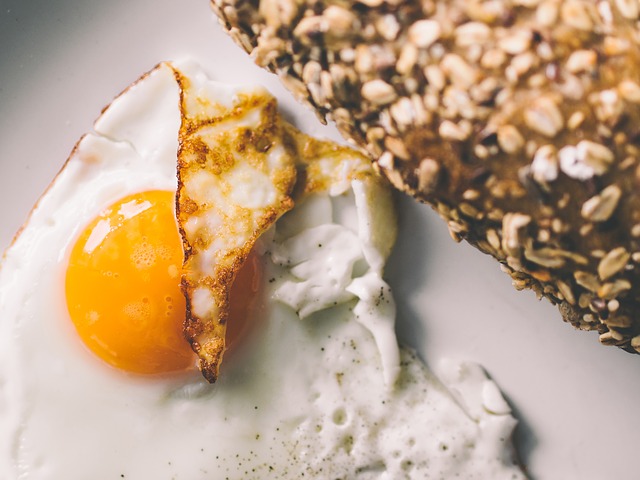 A few moons ago eating a hearty breakfast was considered the cornerstone of healthy living. Breaking the overnight fast immediately after waking to ward off muscle catabolism and jumpstart the metabolism was the standard procedure.
A few moons ago eating a hearty breakfast was considered the cornerstone of healthy living. Breaking the overnight fast immediately after waking to ward off muscle catabolism and jumpstart the metabolism was the standard procedure.
Fast forward to today and you have fitness authorities and social media celebrities propagating the benefits of skipping breakfast and fasting throughout the early hours of the day.
From promoting rapid fat-loss to improving hormonal health and boosting longevity, not eating breakfast has become the solution to persistent physique challenges… or has it?
Is Breakfast the Most Important Meal of the Day?
At first glance, the literature on breakfast consumption seems pretty straightforward: People who eat breakfast are often leaner and perform better than their breakfast-skipping peers.
The problem with the majority of these studies is they are short in duration and/or focus on sedentary, overweight subjects which greatly limits their significance for the lean, health-conscious population. Furthermore, we’re looking at observational as opposed to randomized controlled trials in most cases.
Once you start taking a closer look, however, breakfast quickly loses its competitive edge.
In this randomized controlled trial from 2014 for instance, no discernible difference in weight-loss between breakfast eaters and breakfast skippers following an ad libitum (no food restriction) diet was noted. Whether the subjects consumed breakfast or not had little to no impact on their weight-loss.
If you understand basic physics and the laws of fat-loss, this will come as no surprise to you.
Total energy intake will determine whether you gain or lose weight. In calorie controlled scenarios the role of breakfast is negligible.
But there’s more to this story than you’d think.
Breakfast, more than any other meal, dictates how much you’ll eat throughout the day. The amount of food consumed at breakfast strongly correlates with total daily energy intake.
Eating a substantial breakfast will make you hungrier and more likely to over-consume calories later in the day. Not eating first thing in the morning, on the other hand, has powerful appetite suppressing effects. This is good or bad depending on your goals.
When leaning down, I will occasionally push my first meal back to lunchtime. Eating breakfast ignites appetite for the rest of the day (this is why I recommend “hardgainers” consume a substantial breakfast within the hour of waking) making it harder to stick to a calorie restricted diet.
What’s for Breakfast?
Perhaps more important than the question of whether you should eat or skip breakfast, is what you are having for your first meal of the day.
Opt for low-sugar, high protein foods like eggs, cottage cheese, or a quick protein shake. Eating more protein at breakfast increases satiety and might improve long-term weight management.
“What should I eat for breakfast?”
Sugary cereal with low-fat soy milk? – Nope.
Breakfast burritos at the local drive through? – Nope.
Scrambled eggs with whole wheat toast? – Yes.
Cottage cheese with chopped fruits and nuts? – Oh yeah.
Ultimate Granola with high-protein yogurt? – Now we’re talking.
The Final Word on Breakfast
At the end of the day, it’s a matter of individual goals and personal preference.
If you’re hungry during the early hours of the day, eat something. If the thought of eating in the morning makes you sick to your stomach, push your first meal back later into the day.
Are you trying to gain weight? Are you an athlete? Eat within the hour of waking.
If fat-loss is your priority, omitting breakfast/ fasting intermittently might provide some benefits to traditional fat-loss protocols. Not because of any major hormonal adaptations, but because it’s one less opportunity to consume calories.
There’s nothing inherently good or bad about breakfast. Remember, as far as your diet success is concerned you have total calories and you have macronutrients. Everything else is secondary.
Thank you for reading
Victor
Resources
Clayton, D.J. and James, L.J. (2016). The effect of breakfast on appetite regulation, energy balance and exercise performance. Proceedings of the Nutrition Society, 75(3), pp. 319–327.
Geliebter, A./ Astbury, M.N./ Aviram-Friedman, R./ Yahav, E. and Hashim, S. (2014). Skipping breakfast leads to weight loss but also elevated cholesterol compared with consuming daily breakfasts of oat porridge or frosted cornflakes in overweight individuals: a randomised controlled trial. Journal of nutritional science, vol. 3, e56
Dhurandhar et al. The effectiveness of breakfast recommendations on weight loss: a randomized controlled trial.
Leidy, H.J./ Hoertel, H.A./ Douglas, S.M./ Higgins, K.A./ Shafer, R.S. A high-protein breakfast prevents body fat gain, through reductions in daily intake and hunger, in “Breakfast skipping” adolescents. Obesity (Silver Spring). 2015 Sep;23(9):1761-4.
Wang, S./ Yang, L./ Lu, J./ Mu, Y. High-protein breakfast promotes weight loss by suppressing subsequent food intake and regulating appetite hormones in obese Chinese adolescents. Horm Res Paediatr. 2015;83(1):19-25.
[…] hard-earned muscle if you skip the post workout shake or eat a late breakfast (or God forbid… skip breakfast). Simply make sure to eat sufficient protein throughout the day. Your body will regulate protein […]